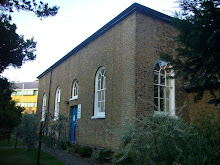William Penn (1644-1718)
William Penn was the son of Admiral Sir William Penn, who served in the Navy under Cromwell, and was frequently mentioned in Samuel Pepys diaries.
William Penn Jr became a Quaker at the age of 22, and was a close friend of George Fox, the founder of the Quakers. Penn quickly came into conflict with the authorities, being imprisoned for the writing of a tract. His writing is his enduring legacy today, and many people find his gentle and poetic style of writing is much more accessible than that of his contemporaries.
He was expelled from his Oxford college for being a Quaker, and was arrested several times. On one occasion after an arrest for preaching in Gracechurch Street, he was found not guilty of the offence even after the judge had put extreme pressure on the jury, but was then rearrested along with the whole of the jury. This case established the right of juries to be free from the control of judges.
There is a widely told story that one time when Fox and Penn met, Penn expressed concern over wearing a sword (a standard part of dress for people of Penn's station), and how this was not in keeping with Quaker beliefs. George Fox responded, "Wear it as long as thou canst."(Meaning, that as long as it didn't conflict with his inner beliefs, it was right to wear it.)
Later, according to the story, Penn again met Fox, but this time without the sword; Penn said, "I have taken thy advice; I wore it as long as I could”.
Penn knew Quakers who had emigrated from Hertfordshire to America and helped to draw up a charter of libertiesfor their settlement in Burlington. He guaranteed a free and fair trial by jury, freedom of religion and freedom from unjust imprisonment and free elections... and one can see why he might!
King Charless II owed Admiral Penn money and settled the debt on his death by granting Penn Jr a large area west and south of New Jersey. Penn called it Sylvania, but Charles changed it to Pennsylania in honour of Admiral Penn. This colony offered true freedom of religion, which wasn't the case elsewhere in the American colonies, where Quakers were persecuted and even executed for their faith.
Penn didn't force a Quaker majority on Pennsylvania, and he didn't simply accept the land from the King, but paid them for their lands and learned several native languages in order to negotiate a treaty with the Native Americans. He introduced laws which said that if a European settler did wrong towards a Native American, there would be a fair trial. The treaty between Penn and the Native Americans was the first which bound the old world and the new together. It was made without swearing, and it was never broken.
Penn did not emigrate finally to the colony, he made a last visit there in 1699, and put forward a plan to make a federation of all English colonies in America, but was forced back to England in 1701, because his financial advisor had cheated him out of thousands of pounds.
Penn didn't make a profit from his work in marketing and establishing the colony of Pennsylvania and was imprisoned for debt and penniless at the time of his death in 1718, although his family retained ownership of the colony of Pennsylvania until the time of the American revolution.
Leonard Pitcher of Twitenham co. Midd. yeoman and his wife, convicted of attendance at an unlawful conventicle at Uxbridge 35 Charles II.
Noah Pitcher, donated £1 for the building of the first meeting house.
Thomas Pocock of Thistleworth co. Midd. yeoman and his wife, convicted of attendance at an unlawful conventicle at Uxbridge 35 Charles II.
James Polter of Harmonsworth co. Midd convicted of attendance at an unlawful conventicle at Uxbridge 35 Charles II.

No comments:
Post a Comment